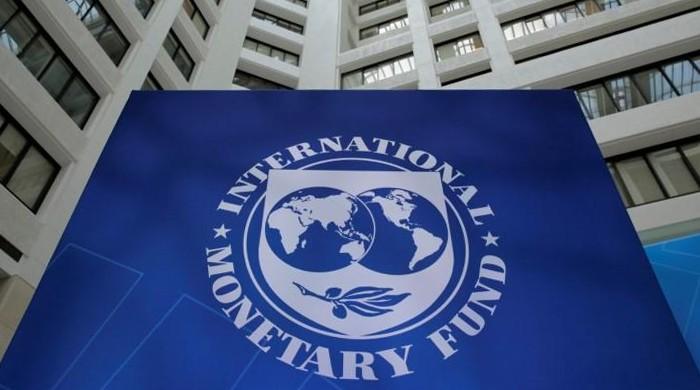Pakistan may ask IMF for fiscal adjustments to EFF: report
 Photo: File
Photo: File
ISLAMABAD: The Pakistan Tehreek-e-Insaf led government "will have to convince" the International Monetary Fund (IMF) to "make fiscal adjustments in line with new financial realities" so as to avoid a major deadlock over the $6 billion Extended Fund Facility (EFF) agreement between the two parties.
According to a report published in The News on Tuesday, the request may be made as early as next month, when a review mission of the international fund visits Islamabad between February 3-14 in order to hold consultations over the EFF with the Pakistani officials.
The News claimed that there were two options for the government to avoid a deadlock. One of these was keeping the revenue target of Rs5,238 billion unchanged, and reduce the rate of regulatory duty and additional customs duty and other restrictions on imports.
Also read: IMF disburses $454m tranche to Pakistan
The second option, according to the English daily, would be a slash in the annual revenue target by Rs200 billion to Rs230 billion, and bringing the total revenue target down to around Rs5,000 billion. Official sources told The News on Monday that the second option is under consideration.
However, the possibility that the IMF asks for reducing or abolishing regulatory duty/additional customs duty (RD/ACD) on selected imported items so that the revenue collection through imports could go up is still very much on the table. If this path was adopted, there will be no possibility to further revise revenue targets.
Asked to comment on the new developments, the IMF chief in Pakistan, Teresa Daban Sanchez, said that the IMF and Pakistani teams are working on the consultations to be held from February 3. “A lot of work is still needed and we will know the dates for sure in a few days," she said.
Also read: Expect the Pakistani economy to 'recover slightly' from 2021: UN report
The report, however, also contended that there were ways the government could revise revenue targets and reduce regulatory duty on imports, thereby boosting imports in a gradual manner and increasing revenue collection in the long term as well.
The State Bank of Pakistan is also all set to unveil a new monetary policy within next few days, but there is hardly any possibility for reducing the policy rate that has remained at 13.25 percent for the past several months. The higher rates are aimed at luring hot money.
However, renowned economist Atif Mian tweeted on Monday regarding hot money. "There is a little benefit of such inflows in the case of Pakistan, and much potential risk. As already explained, if these short-term liabilities continue to build, they can constrain monetary policy and generate external vulnerability," he said.


Post a Comment